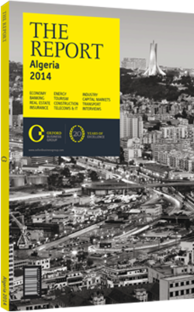Better prevention and infrastructure to aid the fight against cancer
With Algeria going through a demographic as well as an epidemiologic transition over the past few decades, its disease profile has been changing accordingly. While infectious diseases were the main worry during the first decade of independence, recent years have seen the focus change towards non-communicable diseases. Cardiovascular diseases, cancer and diabetes are now the main health problems faced by the population. Cancer, in particular, has become an increasingly pressing issue, leading the Ministry of Health, Population and Hospital Reform to develop a national anti-cancer programme for 2015-19 focusing on expanding early diagnosis practices and availability of radiotherapy.
A Sharp Rise
Coming second after cardiovascular disease, cancer has become a growing worry among Algerians, and now accounts for 9% of deaths, according to the World Health Organisation (WHO). The prevalence rate rose from 80 cases per 100,000 inhabitants during the 1990s to 120 per 100,000 in 2008, and is expected to reach 300 cases per 100,000 people by 2024. The most common cancer among men is lung cancer, while the most common form affecting women is breast cancer. Algeria was one of the first countries in the region to establish a nationwide programme for cancer prevention. But much of the increase in the number of cases has been attributed to insufficient diagnosis. “Cancer is a problem because there is no testing and check-up policy, and a lot of the cases are discovered too late,” Jamal Eddine Khodja Bach, general director at Clinique Al Azhar, a private clinic, told OBG.
Treatment of cancer patients is also a question of structural capacity. According to Abdelmalek Boudiaf, the minister of health, population and hospital reform, cancer patients sometimes need to wait up to 18 months for radiotherapy or surgery. Mortality rates remain high because most Algerians are not able to pay for treatment, which can cost as much as AD350,000 (€3255), according to Jamal Eddine Khodja Bach. Under the 2010-14 five-year plan, the government has pledged to build 15 new oncology clinics to boost capacity.
In June 2014 the new Batna regional anti-cancer centre started operations. The AD3.2bn (€29.8m) facility will serve cancer patients in Batna, Khenchela, Oum El Bouaghi, Biskra, El Oued and Tébessa in the southeastern areas of the country. Another anti-cancer centre set to open soon will be located in the city of Sétif. In total, five anti-cancer centres are scheduled to open before the end of 2014. Besides Batna and Sétif, three other centres will soon be operational in Annaba, Tlemcen and Tizi-Ouzou. Private health operators are also considering building oncology clinics.
Since cancer treatments are currently not supported by social security, private clinics would be an option for wealthier patients aiming to avoid the waiting times in the public system. Private anti-cancer centres are already operating in Blida and Constantine. Clinique Al Ahzar is also opening a new anti-cancer centre in Algiers.
Equipment Upgrade
In addition to increasing the number of anti-cancer centres it will be necessary to ensure that working equipment is available in existing and new facilities. Radiotherapy equipment shortages have been reported in some of the anti-cancer centres. To solve this, Algerian health authorities established a partnership agreement with Swedish-based Elekta and American company Varian Medical Systems to ensure the supply of machinery, maintenance work and training for use of the equipment. A total of 80 accelerators, used for radiotherapy, have been ordered.
“Two years ago we started to abide by European norms saying that you need one radiotherapy machine per 500,000 inhabitants. Instead of putting these new machines in existing hospitals we decided to put them mostly in new anti-cancer centres. We need an extra three years to build these centres instead of putting the machines in existing hospitals, and having them working immediately,” Rachid Bougherbal, president of the Commission on Health and Social Affairs at the Parliament, told OBG. Despite some delays, investment in diagnosis and treatment capabilities is sure to help strengthen the governmental response to cancer.
You have reached the limit of premium articles you can view for free.
Choose from the options below to purchase print or digital editions of our Reports. You can also purchase a website subscription giving you unlimited access to all of our Reports online for 12 months.
If you have already purchased this Report or have a website subscription, please login to continue.

